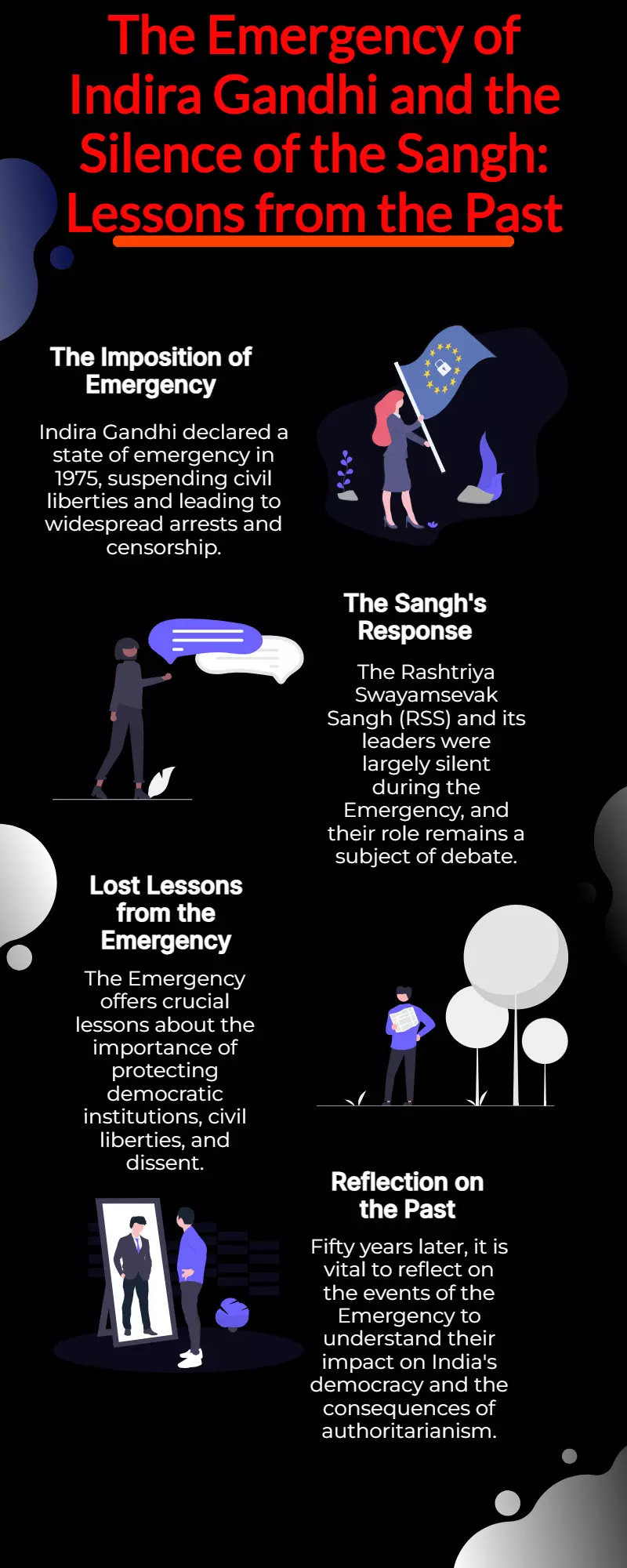Indira’s Emergency & Sangh’s Silence: 50 Years Later, Lost Lessons

By : Sandhya
50 Years Since the Emergency: What India Still Hasn't Learned
On June 25, 1975, Indira Gandhi imposed the Emergency—an era of political repression that continues to cast a shadow over Indian democracy. Every year, the Sangh Parivar invokes this moment in history, painting itself as the sole guardian of democratic values. But the truth tells a different story.
Despite loud claims, the RSS and Jan Sangh did not resist the Emergency with courage. Their top leader, Sarsanghchalak Balasaheb Deoras, wrote multiple letters from Yerwada Jail to Indira Gandhi and Vinoba Bhave, offering support and pleading for the RSS ban to be lifted. These are not speculative accounts but documented facts, recorded by figures like Subramanian Swamy and historian Christophe Jaffrelot.
While socialists, communists, and student movements bore the brunt of the Emergency's brutality, many Sangh leaders quietly negotiated their freedom in exchange for political compromise. Some Jan Sangh leaders even joined Indira's Congress during this time.
The Emergency was officially lifted after 20 months—but today, India finds itself in a far more dangerous situation. Authoritarianism is no longer declared; it's embedded in everyday governance. From attacks on press freedom to institutional capture, the signs are everywhere.
The Modi era has outlasted the Emergency, but its impact is far deeper—reaching into social, economic, and cultural life. Yet the BJP continues to rewrite history, erasing its own complicity and branding Indira's Emergency as the singular threat to democracy.
This moment demands a broader resistance—not just electoral, but one that confronts caste, economic inequality, and cultural authoritarianism. The real danger isn't in remembering the Emergency; it's in failing to learn from it.
